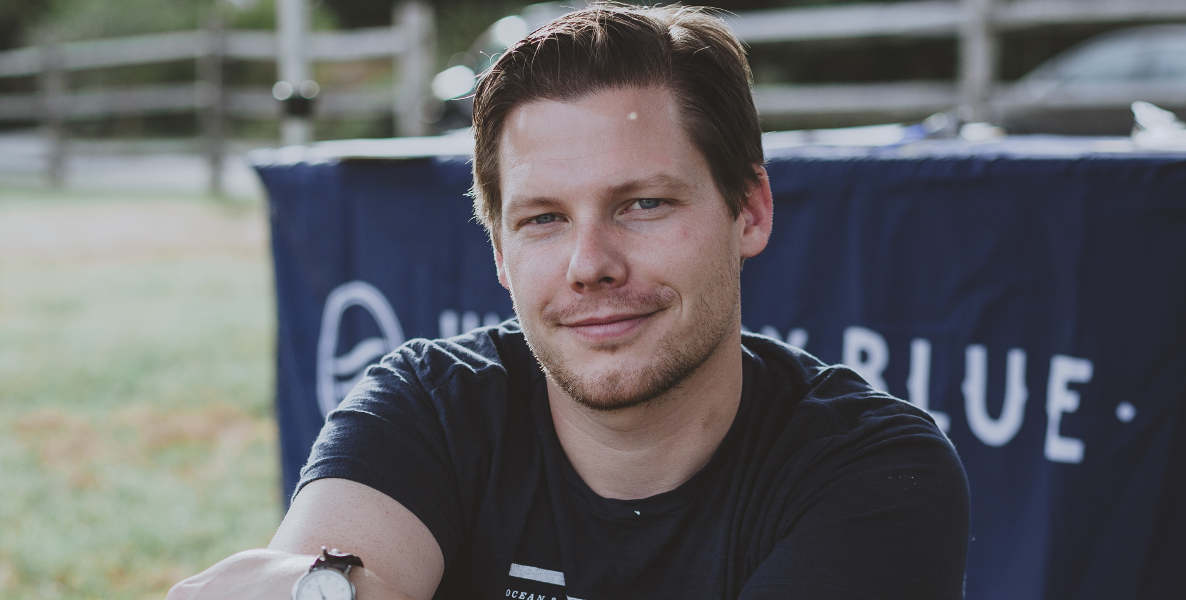Message Agency, a web design firm founded by Marcus Iannozzi in 1995, works almost exclusively with nonprofits, universities, and public institutions. In the years since, the company has repeatedly been recognized for its civic engagement by institutions like the Philadelphia Chamber of Commerce and Benjamin Franklin Technology Ventures.
Today, Message Agency—a certified B Corporation—has grown in size to over a dozen employees, but maintains its do-gooder intentions, from the spread between Iannozzi’s salary and his employees to searching for cost-savings for clients.
In anticipation of this week’s B Corps Champions Retreat—when 300 socially-conscious companies from 22 countries are converging on Philly—we spent a few minutes with Iannozzi, talking about how becoming a B Corp has strengthened Message Agency’s commitment to being civically impactful.
Todd Snider: Tell me a little bit about the history of Message Agency and your culture.
Marcus Iannozzi: I started off as a solo consultant in the 1990s, working mostly with universities, translating the results of research into products and tools that broader audiences could use, whether [they were] policy makers or the general public. And that was before the web was a thing—this was the early-1990s. We transitioned into a digital firm, and I’ve had the honor of only working with nonprofits, universities, foundations, and government agencies. (We’ve worked for a handful of for-profits, but they’re usually B corps or a local organization.) I purposefully set out to have a social mission with this business. By the time we actually took the [assessment for B corporations], we were a Best for the World—the first time we took the assessment! And we’ve been there for three years running.
TS: What does the idea of civic engagement mean to you personally?
![]() MI: I feel like a business has a responsibility to make a contribution to the community that it serves, and that involves redefining the value that the business generates. For example, we don’t think of the value that the business generates as just being owned by me, the owner. It is something that gets redistributed to our staff—because they have a key role in generating that value, sometimes more than me!—and also our clients.
MI: I feel like a business has a responsibility to make a contribution to the community that it serves, and that involves redefining the value that the business generates. For example, we don’t think of the value that the business generates as just being owned by me, the owner. It is something that gets redistributed to our staff—because they have a key role in generating that value, sometimes more than me!—and also our clients.
We do that in a couple of ways. We try to leverage all the things we’ve built before for other clients, and rather than making big margins off those things, we try to drive down the cost of delivering them to new clients, so that [the new clients] benefit from the investments the [old clients] have made. It means sometimes choosing to lose money on a project, because it’s more important that the organization, that we really believe in and that we really want support, gets help from us. We can’t do that all the time, but we figure out how to balance our books in different ways.
A lot of that, too, is just my not being a greedy owner. Not that all owners of businesses are greedy—that sounds terrible. But the distribution of wages in this business, from what I get paid to what the lowest paid employee is paid, is very narrow. It’s not because I was born into wealth and don’t need the money; I just happen to lead a very simple life, a good life, and I don’t have to extract as much out of the business as other owners do. And we operate without debt. Or investors. So we’re able to make those decisions without the influence of other interests.
TS: Why did you want Message Agency to become a B corporation?
MI: It really is an imprimatur—like a Good Housekeeping seal. But it’s more meaningful than some of the other pay-to-play badges that people engage in, especially in my industry. [Being a B corp], to me, is actually a meaningful signal to our clients that we are who we say we are.
What we hear from clients is that, first of all, [being a B corp] establishes a level of trust, the fundamental part of the relationship, that is really beneficial. Because, someone else, independently, has examined how we do what we do. It’s not about how we build websites or projects, it’s about how we run our business. And that’s very important to our client base.
![]() And it’s opening us up to a whole new community—and maybe even a new market—of businesses that we would not have met with otherwise. It allows us to understand how to do what we do, better. [Message Agency] is hard—it’s a hard way to run a business. Hearing other people share experiences is so powerful, not only to inspire us to keep going, but also by [providing] examples that we can adopt, that our colleagues are using, to help us get there.
And it’s opening us up to a whole new community—and maybe even a new market—of businesses that we would not have met with otherwise. It allows us to understand how to do what we do, better. [Message Agency] is hard—it’s a hard way to run a business. Hearing other people share experiences is so powerful, not only to inspire us to keep going, but also by [providing] examples that we can adopt, that our colleagues are using, to help us get there.
TS: Lastly, what advice would you give to companies that are considering becoming B corporations?
MI: Do it! On the one hand, I think it’s really important to grow the number of B corps that are in this economy, right? This is a movement that is really important to grow. [Being a B corp] inspires other organizations to rethink how they’re doing things—it actually gives them a roadmap for doing it. And I would encourage anyone to take the assessment, regardless of whether or not they want to be a B corp. They may surprise themselves at how well they’re doing, and start to rethink who they are—their identity as an organization. I always thought ‘business’ was a dirty word, and it was, until I realized that I could run a business differently and, using this assessment, continue to run my business in an impactful way. It’s really been valuable, even for a firm like ours that scored really highly to begin with [on the B corp assessment].
I would encourage people to use it as a framework for proving their social impact, especially large corporations. What are they doing? What kind of impact are they really having beyond volunteering?
Photo header: Message Agency









